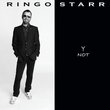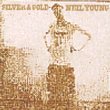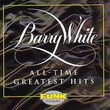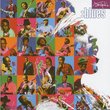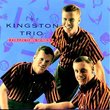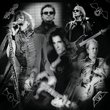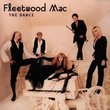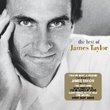| All Artists: Kinks Title: One for the Road Members Wishing: 3 Total Copies: 0 Label: Velvel Records Original Release Date: 1/1/1983 Re-Release Date: 4/27/1999 Album Type: Original recording reissued, Original recording remastered, Live Genres: Pop, Rock, Classic Rock, Metal Style: Album-Oriented Rock (AOR) Number of Discs: 1 SwapaCD Credits: 1 UPC: 634677972829 |
Search - Kinks :: One for the Road
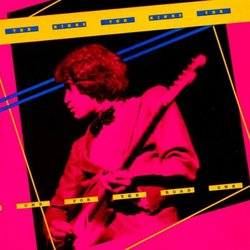 | Kinks One for the Road Genres: Pop, Rock, Classic Rock, Metal
The Kinks, more perhaps than any band of their magnitude, appreciated the niceties of daily life. Think of how Ray Davies bestowed his blessings on china cups and such in The Village Green Preservation Society. The Kinks o... more » |
Larger Image |
CD DetailsSynopsis
Amazon.com The Kinks, more perhaps than any band of their magnitude, appreciated the niceties of daily life. Think of how Ray Davies bestowed his blessings on china cups and such in The Village Green Preservation Society. The Kinks of 1980's One for the Road, however, cast aside their attention to detail in favor of broad gestures. Here the Davies boys and company (including original drummer Mick Avory) attack their classic repertoire and some newer songs with hard-rock force. Lest one think they were straining to fit into tight trousers that no longer fit their nearly middle-aged bums, recall that the Kinks basically invented hard rock with "You Really Got Me" and "All Day and All of the Night" (both of which turn up on Road). This isn't Kinks of the highest order, but as a live greatest-hits document of a significant period of a great band, it's certainly worthwhile. --Steven Stolder Similar CDs
Similarly Requested CDs
|
CD ReviewsYeah, they overdubbed the hell out of it!! Eric E. Weinraub | Issaquah, Washington United States | 03/05/2002 (5 out of 5 stars) "Having seen these guys a half dozen times, they're an awesome live band. Ray Davies is one of THE great song writers of the 20th century. From the Low Budget tour, this is great rock and roll." Well engineered live album L.A. Scene | Indian Trail, NC USA | 07/12/2006 (4 out of 5 stars) "One thing that I greatly admire about Ray Davies - lead singer of the Kinks is that when it comes the music business, he isn't afraid to deviate from the formula. As a result of this, The Kinks became one of the most innovative bands of the Rock Era. A band that is as innovative as the Kinks makes themselves very attractive as a live act. Therefore I was pleased to find the release of "One For the Road". This was a live collection that originally released in 1980 and covers material recorded live 1979. This collection does a very good job at covering the first 15 years of the band's history.
There are really three phases to The Kinks. the Kinks started out in the 1960s as a "rebellious" group of rockers as part of the first British Invasion that would soon have a series of hits. I call this phase - "1960s Kinks". This phase goes from 1964-1971. "1960s Kinks" was a commercially successful period. Although this wasn't Punk Rock, many credit the style of the Kinks for becoming the strawman for the Punk Rock movement that would happen in the 1970s. It was during this period the Kinks were mysteriously banned from playing in the U.S.. The second phase is the "Rock Opera Phase" from 1972 to 1976. This was not a commercially successful phase for the Kinks. These concept/Rock Opera albums were not well received by the public, but eventually would be accepted by Kinks fans. When the group made the switch to Arista Records, The Kinks went toward more of a Hard Rock/Rock Pop direction. This would start the third phase called "The Later Years" covering 1977 onward. There is a bunch of irony in this switch. The Kinks lost much of their popularity in the UK because this new style wasn't considered "in-step" with the UK's Punk Rock craze. However, The Kinks would suddenly become a major band in the U.S. - the very country where they were once banned from. During this phase, much of their style sounds a lot like an American Band as opposed to a band that came up through the Early British Invasion ranks. In a way, even though the Kinks went in the Hard Rock direction, they showed that they could continue to ignore the "rulebook" for the music business by not going with the trends of that time (and basically do things their own way). The one drawback of "One For the Road" is that there isn't a lot of material from "The Later Years" phase. Since the Kinks were touring in 1979 - which was the early part of the "Later Years" phase, they were touring in support of the "Low Budget" album. As a result, there are many songs from this phase. There are six songs included from "Low Budget": "Attitude", "Catch Me Now I'm Falling", "Pressure", "National Health", "(Wish I Could Fly Like) Superman", and "Low Budget". Other songs from this phase include "Prince of the Punks" (from "Sleepwalker") and "Misfits" (from "Misfits"). It is worth noting that the Kinks would release another live album "The Road" that contains much of their "Later Years" material. As for the other phases, the "Rock Opera Phase" is not represented much. The only songs included from this phase are the classic - "Celluloid Heroes" (probably the best known song of this era) and "The Hard Way". The remaining songs are songs from "1960s Kinks". There is also a track - "20th Century Man" that was performed during the "Low Budget" tour that is included. This collection says that this was he first time that this song was released on CD in the United States (although it was released on the "Muswell Hillbillies" album). The tracks included from this collection are recorded from various venues: New Brunswick, New Jersey; Lowell, Massachusetts; Amherst, Massachusetts; North Dartmouth, Massachusetts; Providence, Rhode Island; Syracuse, New York; and Zurich, Switzerland. On a live album, my preference is normally to include the material from a single night's performance in the same order as it was delivered. This allows for the magic of the show to be captured as it was delivered. I have seen very few live albums fail when they present an "as-is" recording. In the case of "One for the Road" - despite the fact the recordings are compiled from these various venues, the album is engineered in such a way that this is nearly transparent with very few gaps. The amazing thing is that if the all of the performances were included from a single venue, the end product would have even been better than it is now. The album even provides some moments of improvising. The two best examples are the "Opening" track with features some amazing guitar work by Dave Davies. During this track, there is a "false guitar start" to "You Really Got Me". Eventually there is a segue to, "The Hard Way" (the amazing thing is that these first two tracks were recorded at different venues, yet there is a seamless transition). "You Really Got Me" is played much later. There also is an "Introduction to Lola" in which Ray Davies jokes the crowd he isn't going to play "Lola". In jest, the crowd grumbles and Ray says they will play - but only if the audience sings along. This segues to "Lola". As for the tracks, the highlights are "The Hard Way", "Catch Me Now I'm Falling", "Lola", "All Day And All Of the Night", "Prince of the Punks", "(Wish I Could Fly Like) Superman)", "Celluloid Heroes", "You Really Got Me", "Victoria", and "David Watts". The liner notes are outstanding. Fred Schruers provides a terrific write-up that gives some background and insight into what went into "One For the Road" - definitely some worthwhile reading. In the credits are included when the tracks were recorded as well as what locations they are from. Overall, this is a very good live recording. Highly recommended." |

 Track Listings (21) - Disc #1
Track Listings (21) - Disc #1